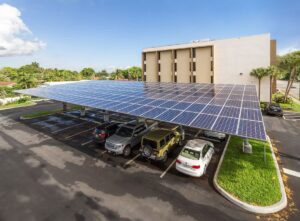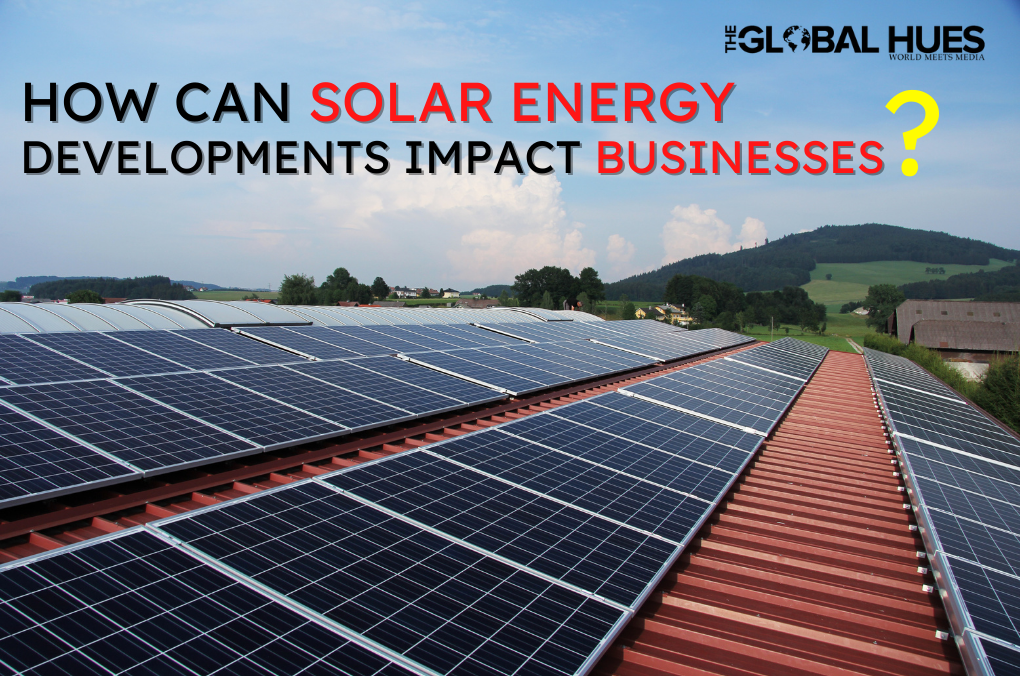The sun is the ultimate power source. It provides more energy than we ever need. It won’t run out anytime soon like other energy sources such as fossil fuels. Solar energy is one of the most renewable sources of energy that can benefit both the economy and the environment. For your local choice for solar panels in Washington, consider the long-term benefits of solar energy.
Electricity is believed to be an essential source of energy required to run many important business and basic life activities. Almost everything today works on electricity such as AC’s, computers, heaters, refrigerators, and many more appliances.
Which is the most electricity-consuming sector in the world?
In the United States alone, 40% of the energy that’s produced is utilized by businesses. As the demand for electric power is rapidly increasing, a considerable amount of attention is being given to techniques that are renewable and sustainable. One of the harmless techniques to produce electricity is the use of solar energy. But Many times it is seen that turning to renewable energy isn’t worth the effort due to:
- its large installation and maintenance cost
- intermittent nature like the intensity of the sun varies with location and time
- its large grid installation requires a lot of space to meet energy needs
Regardless of these mentioned features in the last decade due to rising concern for the environment, many businesses have shifted to renewable energy sources.
Why should a business go solar?
A business should look for new ways to be more sustainable. “Going green” is an environmentally conscious energy choice. However, it will also increase the bottom line. It can also help as a strategy to attract new clients and customers. One of the highest overhead costs an individual can face is electricity while being subject to electric rate fluctuations. Sudden price fluctuations add instability to cash flow management. Thus, the business goes uncertain.
Let’s look at how a business can lessen that load and benefit from solar panel installation.
How Does Solar power Benefit a business?
Lower overhead costs
The expense of supplies, insurance, property maintenance, and utilities is inevitable in managing a business. Offices use lights, lifts, AC, coffee machines, ID card readers, biometric scanners, etc. that are electrically driven. One major operating expense that can be easily reduced is electric energy. Traveling to places and communicating from a different corner of the world is required in business most of the time, all of which is possible because of electricity.
Switching to solar power is a big step. Solar power can reduce electrical bills by a significant margin. As reported, immediately after converting to solar power the average business reduces their electricity cost by three-quarters. It continues at that rate for the rest of the system’s life.
Longevity and sustainability
- Hydroelectricity can be a power source in areas that have a suitable water supply to turn generators. Hydroelectric power can affect life in natural habitats like land and water. It can reap people’s land and can alter the temperature and flow of rivers. Therefore, Hydro plants have a limited output capacity.
- The dependency on electricity generated from fossil fuels can lessen in the future. The carbon footprint from Coal and gas-fired electrical generation stations will be used to regulate electricity. This will lead fossil fuel to cost more for generation onto the consumer.
- Given the volatility of accidents and nuclear waste problems, The future of alternate electrical sources like nuclear plants is uncertain. This makes the only relevant option available to be the sun.
There are many installation options available for businesses depending on the type of premises and activities the company plans. There are rooftop installations, ground-mounted arrays, and canopy in the parking lots. A combination of arrays is opted to meet the requirements for operating retail stores, office buildings, corporate campuses, manufacturing facilities, data centers, or warehouses.

Energy Independence
One of the major benefits to not rely on commercial energy supply sources is the assurance of a reliable electric supply. Business becomes dependent on energy which cannot be exploited and is abundant in nature. In America, there are regular power interruptions from severe storms in many places. Similarly, in many areas, commercial power failure is a fact of life. A power-sensitive industry like cold storage can’t afford a lapse in the electrical supply. A self-reliant solar panel system gives a dependable electrical supply despite power grid failures.
Solar panels have no moving parts as present in some machinery equipment. There is a series of interconnected panels that convert the sun’s rays through a photovoltaic process to produce live alternating current electricity. It’s the same current that is provided by any commercial power company, but you produce it independently. Solar energy gives the option of storing electricity through a battery system. Power is always there when you need a backup such as nighttime or fading light.
Solar Tax Benefits
One of the chief benefits of solar panel development is tax benefits. All levels of local, state, and federal governments offer some beneficial tax incentives and financial assistance programs for alternate sources of electricity. They do so to support the move towards renewable and clean use of energy.
Here are the primary tax benefits that one can receive when their business goes solar:
26% Federal Investment Tax Credit (ITC)
Also known as a federal solar tax credit. This United States federal government tax relief allows you a 26% payback on the overall cost of your solar power system. For instance, if you invested $50,000 in your solar panel installation, you’re entitled to receive a $13,000 tax credit. As well, there is no threshold limit on the program so you can invest as much as you want in solar energy and still receive the 26%payback.
Accelerated Depreciation
Modified Accelerated Cost-Recovery System (MACRS) is another federal government program. The MACRS depreciation method allows greater accelerated depreciation over the life of the asset. This means that the business can take larger tax deductions in the initial years and deduct less in later years of the asset’s life.
Solar Renewable Energy Credits (SRECs)
This solar energy option allows in recovering equipment installation costs by using your system’s energy production. Government frameworks calculate one SREC being equal to 1,000 kWh. They make it mandatory for electric companies to participate and honor every SREC you produce from your solar equipment.

Guarantees Return on Investment
How important ROI on the purchases in the business can be? This is well understood by a business owner. Investment in renewable energy can be large initially. but it will help to save money in the next few years. It gives a large return on the money invested.
Thousands of dollars a year is saved on energy bills and maintenance fees and repairs. This will depend on the size of the business too. As traditional resources, like coal, decrease, A business owner could help their company grow by keeping more money in their pocket.
Community Improvement
How would a customer react to a company which keeps having a power cut till late at night?
Or how a factory with billowing smoke out of its chimneys would look?
Solar energy can enhance a company’s image. The company’s concern for customer comfort, environment, and renewable energy gives a sense of security to people. An improved image improves the overall sales of the business too. A business owner needs to consider the decisions that affect the lives of those around the business. A business known for polluting the air or bringing down the quality of life in the city may develop a bad reputation.
This can also help in developing a new marketing approach. Solar energy developments in a business can attract a large chunk of the millennial population. They will incline in particular towards green and sustainable companies in the long run. As they get older and become a larger portion of the buying population, creative marketing strategies to appeal to them have to be made.
Top Companies Using Solar Power (Based on Megawatts Installed)
According to the SEIA (Solar Energy Industry Association) report, since 2012, the top U.S. businesses have increased their solar capacity by 240%. The increment in solar power has helped to create thousands of American jobs.
1. Target corporation (147.5 MW): Target added 40 MW of solar in 2017. It reached the goal of 500 rooftop solar installations in2020.
2. Walmart (145 MW): “Walmart’s effort to expand and accelerate its solar power initiative program here in California demonstrates its commitment to sustainability,” said Mary D. Nichols, Chair of the California Air Resources Board.
3. Apple (93.9 MW): Since 2014, Apple’s data centers have been generated by 100 percent renewable energy. All of Apple’s renewable energy projects have reduced greenhouse gas emissions (CO2e) by 54 percent from its facilities worldwide. It has prevented nearly 2.1 million metric tons of CO2 from entering the atmosphere.
4. Kohl’s (50.2 MW): The departmental store has more than 200,000 solar panels installed at stores, corporate offices, and distribution centers.
5. IKEA (44 MW): More than 90% of IKEA’s store is powered by solar energy.
6. Macy’s (40MW): Macy’s Installed solar arrays on a total of 102 sites by the end of 2016.
Conclusion
Renewable energy sources, like solar energy, are beneficial in both economical and environmental aspects. Solar power is a long-term investment. It can make a good market approach and can bring a good return on investments in the business sector.
Also Read:
- From Sunshine To Savings: How Many Solar Panels Do You Need For Your House?
- Runwal 25 Hour Life Review
- India Outshines With Its Ambitious Renewables Energy Targets
- The Call For Reducing Greenhouse Gas Emissions
- Socially Responsible Investing: Bringing A Positive Societal Change
- Biofuel: An Innovative Environment-Friendly Sustainable Fuel
- Curtain Closes On The Region’s First Sustainable Finance Conference Ahead Of The City’s Preparations For COP28
- Driving Green: The Future Of Vehicle Manufacturing With Sustainable Materials
- Adapting To Climate Change: The Case For Fabric Structures
- Greening Your Workspace: Must-Have Plants For A Happier Office
- From Financial Crisis To Global Cooperation: The Evolution Of G20
- Forest Conservation And Restoration: Through A Business Lens
- DIFC Continues To Drive Action On Global Climate Change On Path To COP28




